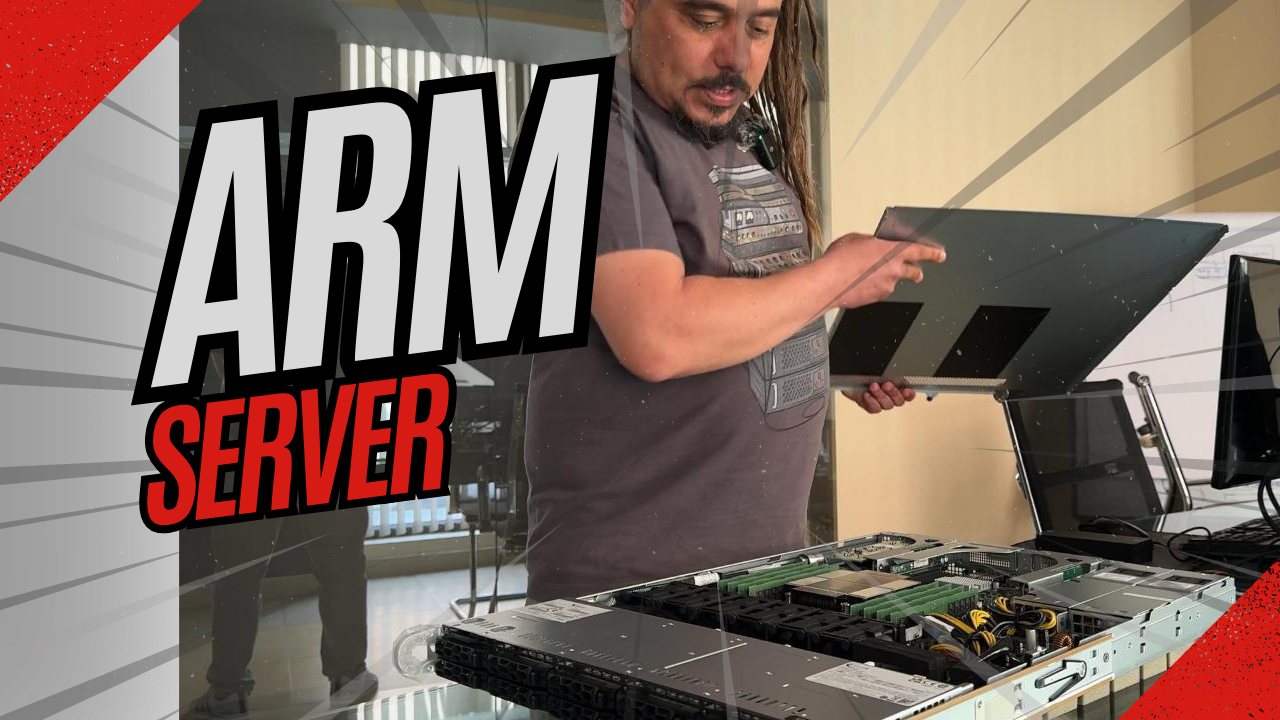
ARM Servers: Redefining Energy Efficiency and Performance
In today’s fast-paced world of server technologies, businesses are looking for innovative solutions for their IT infrastructure. One such innovation rapidly gaining popularity is the ARM server. Known from mobile devices, ARM processors are now entering data centers, promising a revolution in energy efficiency and server performance. But what exactly are ARM servers, and are they ready to redefine the future of data centers?
1. ARM vs. x86: The Difference in Server Architectures
The main difference between ARM (Advanced RISC Machine) and x86 lies in the instruction set. x86 servers use a complex instruction set (CISC), while ARM servers rely on a reduced instruction set (RISC). This fundamental difference results in significantly lower power consumption and less heat generation for ARM processors, a key advantage for large-scale server solutions.
2. Energy Efficiency of ARM Servers: A Key Advantage
The biggest strength of ARM servers is their outstanding energy efficiency. Thanks to their RISC architecture, they consume far less energy compared to equivalent x86 servers. This directly reduces operational costs for electricity and cooling in data centers, which is critical for profitability and reducing the carbon footprint.
3. Applications of ARM Servers: What Workloads Are They Best Suited For?
Despite initial skepticism, ARM servers are finding increasingly broad applications:
- Web Hosting and CDN (Content Delivery Networks): Their energy efficiency and high density make them ideal for serving static websites and caching content.
- Cloud Services: Leading cloud providers are experimenting with and deploying ARM servers to deliver more efficient and cost-effective virtual machines.
- Edge Computing: Low power consumption and compact size make them suitable for edge workloads.
- AI and Machine Learning: ARM processors are increasingly used for specialized tasks such as AI inference and data processing.
4. Performance of ARM Servers: Competing Under Heavy Loads
In the past, x86 servers dominated intensive computing. Modern ARM server processors, however, have significantly improved their performance. There are now ARM solutions that successfully compete with x86 in parallel computing and large-scale workloads, where a high number of cores is a major advantage.
5. Software Compatibility with ARM Servers: A Growing Ecosystem
Software compatibility used to be a major challenge. However, the ARM ecosystem is evolving quickly. Popular operating systems like Linux (Ubuntu, CentOS, Fedora) now provide much stronger support for ARM. Many applications are being compiled and optimized for the ARM architecture, making it easier to deploy ARM server solutions.
6. Costs of ARM Servers: An Economic Analysis
The costs of ARM servers can be highly competitive, especially for large-scale deployments where energy savings and higher density lead to substantial reductions in operational expenses. Capital costs depend on configuration and performance levels.
7. Leading ARM Server Processor Vendors:
Several key players are driving the ARM server processor market: Ampere Computing (Altra, Altra Max), NVIDIA (after its acquisition of Arm Ltd.), among others — offering powerful and energy-efficient solutions for the server industry.
8. The Future of ARM Servers: Entering the Data Centers
The future of ARM servers looks bright. The demand for energy efficiency, the need for space optimization, and the maturing ARM ecosystem suggest that this architecture will play an increasingly important role in data centers. More cloud providers and enterprises are expected to choose ARM servers for a variety of use cases.
9. Challenges in Deploying ARM Servers:
Despite the potential, there are challenges. Software compatibility may still be an issue for some applications. Performance in the heaviest workloads can still be an area where x86 maintains an advantage. The development of the complete ecosystem is still ongoing.
Custom ARM Server Solutions from Persy for Your IT Infrastructure
Leveraging the potential of ARM architecture, we at Persy offer our clients the opportunity to design and deploy custom ARM server solutions tailored to their specific needs. Our team of experts has deep knowledge of both ARM technologies and the diverse IT infrastructures and software ecosystems used by modern businesses. We can analyze your existing environment and design ARM server solutions that not only optimize energy efficiency and performance, but also integrate seamlessly with your current hardware and software. Whether you need ARM servers for web hosting, edge computing, or specialized workloads, we will deliver a solution that is efficient, cost-effective, and fully integrated into your IT environment. Contact us to discuss how ARM servers from Persy can be the next step in advancing your IT infrastructure.
Make an informed decision for your IT infrastructure today! Our specialists are ready to answer all your questions. Call us or reach out easily through our [Contact Form]. We look forward to hearing from you!
 English
English Български
Български Español
Español